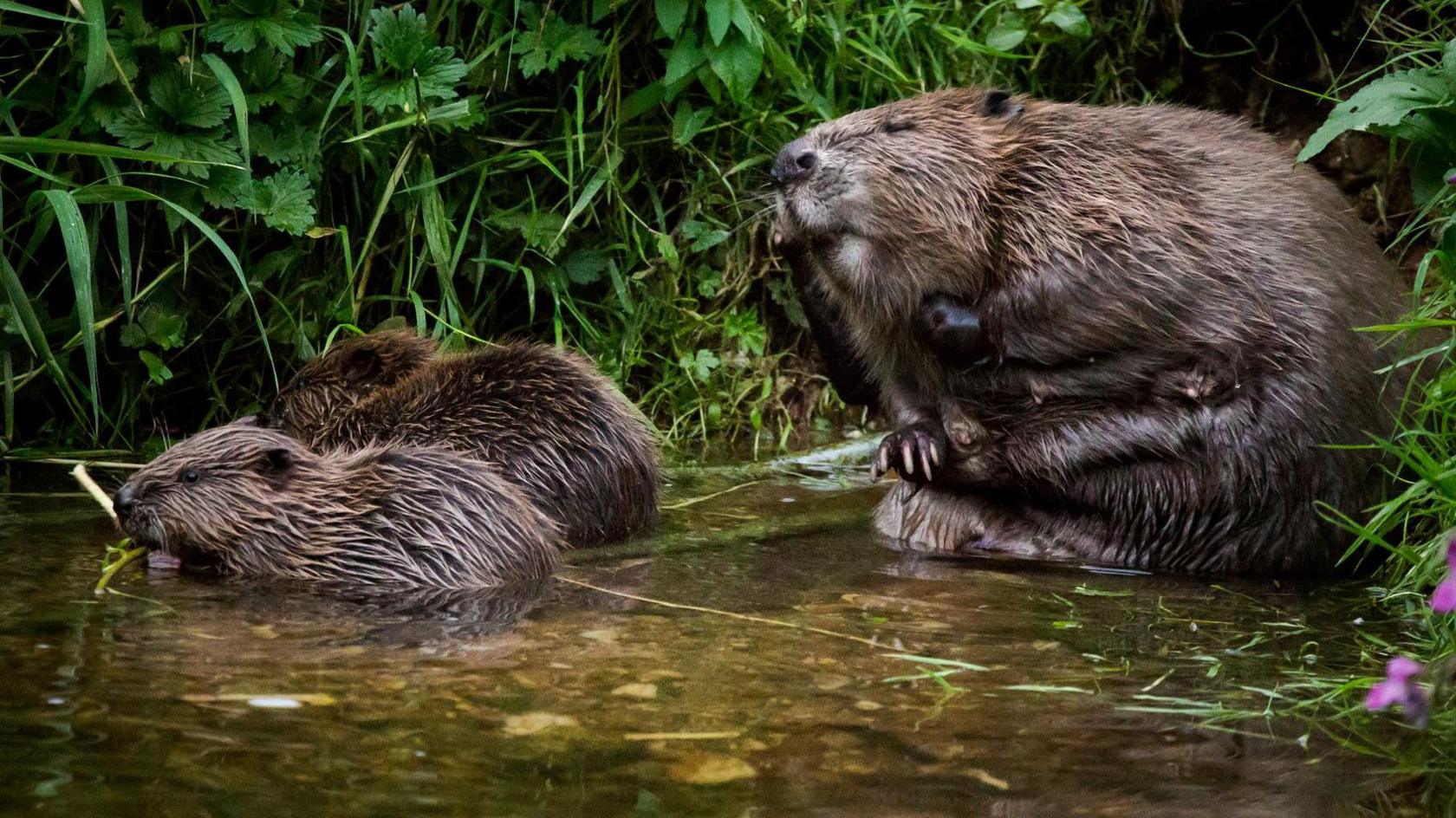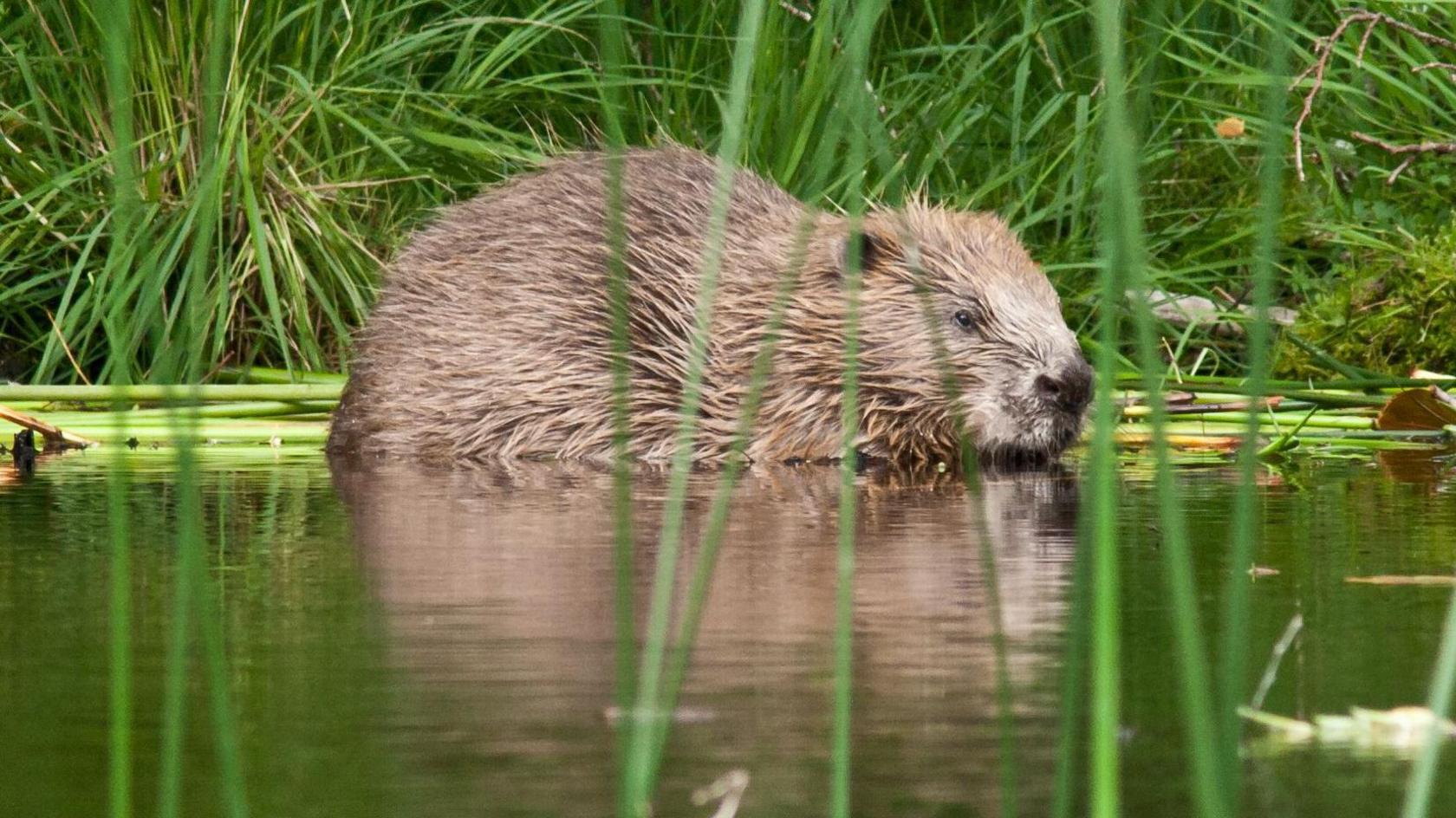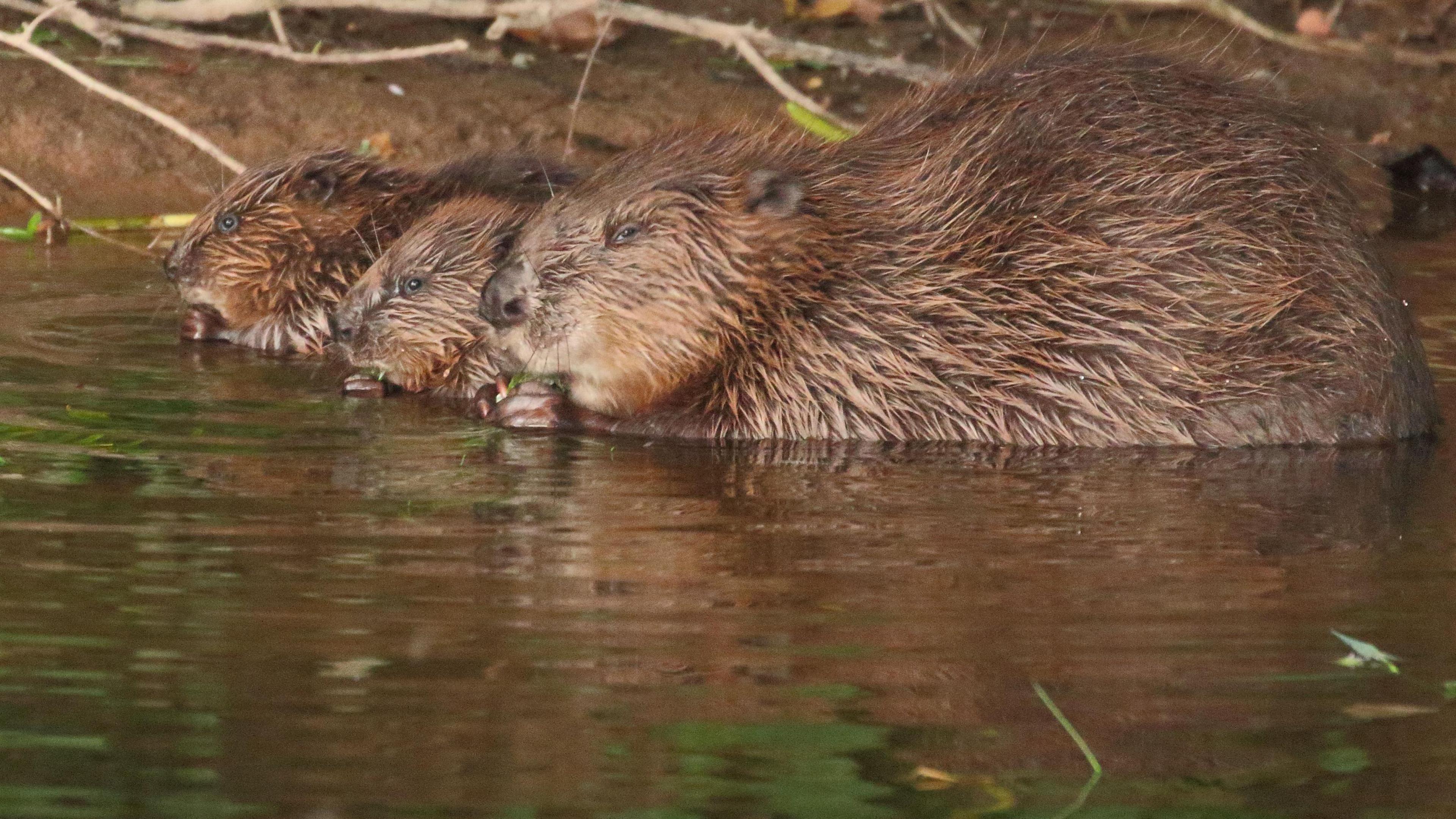Baby boom prompts call to boost wild beaver population

A beaver and kits at Otterton, Devon
- Published
A network of wildlife charities is calling for beavers to be released into rivers across England and Wales in the wake of a kit baby boom.
The beaver is a keystone species that can bring huge benefits to nature but governments are stalling on plans to reintroduce them into the wild, the Wildlife Trusts say.
They want the governments in England and Wales to publish strategies for returning beavers to their natural habitats and for “illegal” wild populations to be allowed to stay.
This summer has seen an upsurge in sightings of baby beavers. Kits have been seen swimming on rivers in Kent and there has been a crop of births in fenced enclosures at nature reserves.
Baby beavers born in city river delight residents
- Published8 July 2024
First baby beavers born in urban London for 400 years
- Published13 August 2024
First beaver born in Northumberland for 400 years
- Published12 July 2024
Scientific studies showed beavers could improve water quality, help alleviate flooding and drought, and give a huge boost to habitats and other wildlife, the Wildlife Trusts' landscape-recovery director, Rob Stoneman, said.
“Nature needs beavers – but at the moment, these extraordinary mammals are either confined to enclosures where the benefits to communities are limited or they’ve been released illegally and there are no management plans in place to support land managers,” he said.
Beavers cannot be legally released into the wild, except in Scotland.

An adult beaver on a river bank in Scotland
Beavers disappeared from Britain about 400 years ago, after being hunted to extinction for their meat and fur.
But in the past few decades, the semi-aquatic animals have sprung up in fenced enclosures on nature reserves or been found living in rivers through unlicensed releases and escapes.
There are thought to be hundreds of wild beavers living “illegally” in English rivers and more than 1,000 in Scotland.
This summer, beavers were born in enclosures from Ealing, west London, to the Wallington Estate, in Northumberland, on rivers in Canterbury, Kent, and at the Cairngorms, in the Highlands.
Beavers were acknowledged as a native species in England in 2022, paving the way for reintroductions - but no strategy has been announced, despite a three-year consultation and encouraging signs from ministers.
In England, there is one “official” population of beavers, on the river Otter, in Devon, where escapees were given permission to stay.
Elsewhere, wild populations are caught in a “limbo”.

A beaver and kits on a river in Devon
A Department for Environment, Food and Rural Affairs official said: “This government is absolutely committed to restoring and protecting nature and we support species reintroductions where there are clear benefits for nature, people and the environment.
“We will continue to work with Natural England to develop our approach to beaver reintroductions in England.”
But some farmers and landowners oppose reintroductions, because wild beavers can damage crops and cause localised flooding.
Successful reintroductions required a process “to support communities to live alongside beavers”, Devon Wildlife Trust nature-recovery director Pete Burgess said.
And this included rewarding landowners who made space for beavers, through agri-environment schemes.
In Wales, beavers have not yet been recognised as a native species, meaning they are not formally protected.